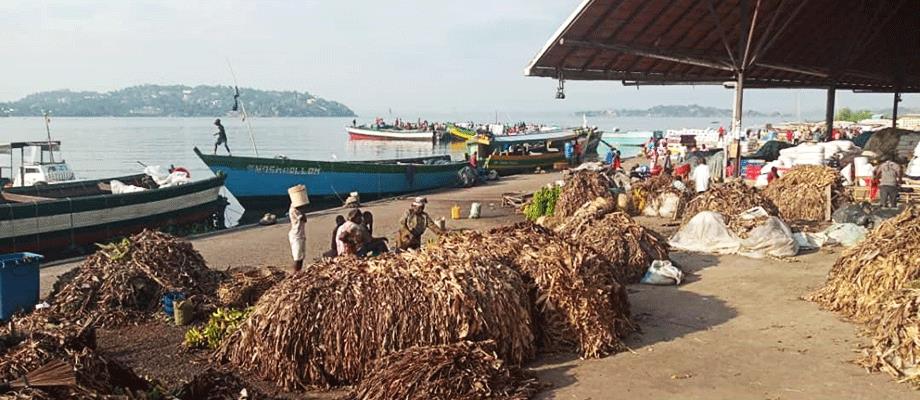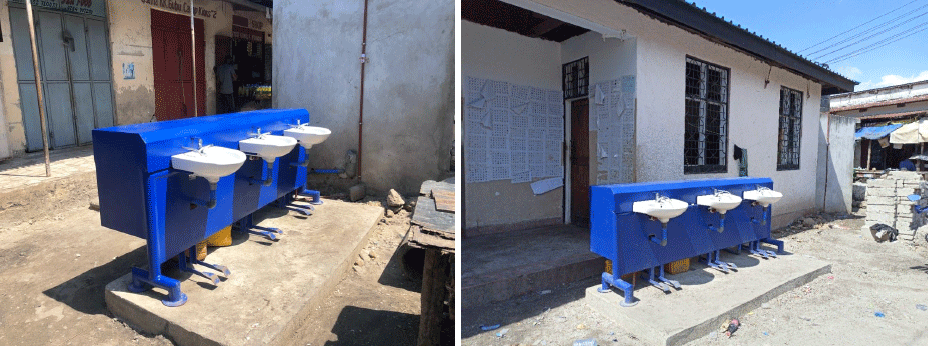Enhancing sanitation and hygiene at Kunduchi and Kirumba Fish Markets in the wake of COVID-19

In the wake of the COVID-19 pandemic, the Government of Tanzania has taken measures to curtail the spread of the virus throughout the country. Moreover, the country acknowledges that fishing communities are amongst the more vulnerable to face the challenges brought on by the virus, often lacking hygiene and sanitation awareness and facilities, and low capacity at many landing sites and fish markets to control the spread of viruses. In order to control the impact that COVID-19 has on the communities dependent on fish trade in Tanzania, high standards of hygiene and sanitation are essential to ensure community confidence and policy compliance.
 Two multi-point handwashing machines installed at Kunduchi fish market. Two multi-point handwashing machines installed at Kunduchi fish market. |
The Government of Tanzania, with financial support from FAO and implementation by the Aqua-Farms Organisation and EMEDO, has focused on promoting and maintaining hygiene and sanitation at Kunduchi and Kirumba fish markets by firstly, establishing handwashing stations, and secondly, educating stakeholders through a hygiene promotion workshop.
The community groups involved in the project activities including fishers, processors, buyers and sellers, local government authority (BMUs, fisheries officers, market leaders and Ward executive officer), Municipal authority (Municipal Director). Stakeholders were involved in all stages of the project including the, site visit, construction and installation of the handwashing facilities and arrangement of the workshop for sensitization.
From preliminary observations, people are already using the systems and employing the practices taught in the workshop. This is a promising sign for further planned sensitisation workshops scheduled for other parts of the country. Formal monitoring and evaluation will be carried out by semi-structured interview from December 2020 through to March 2021, and video recordings of the handwashing stations to track frequency of use.
